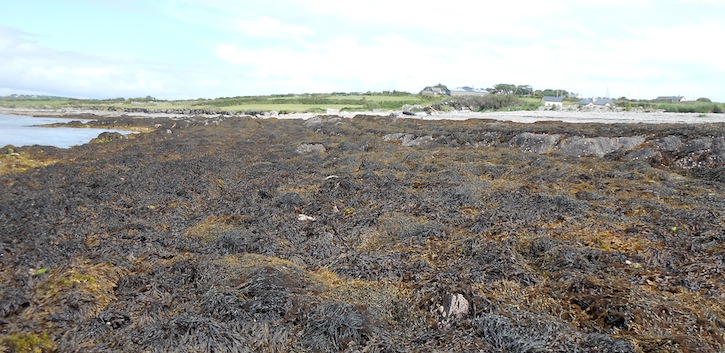2015 Press Releases
IEA gives UCC Professor the green light

The International Energy Agency (IEA) has elected UCC’s Professor Jerry D Murphy to a senior international role as Leader of the IEA Task 37 ‘Energy from Biogas’ for the trimester 2016 - 2018.
The move will be seen as an honour for Ireland and UCC. The International Energy Agency (IEA) Task 37 ‘Energy from Biogas’ is the largest Task in IEA Bioenergy. The role of the Task is to create the conditions for our gas grids to have green renewable gas.
It has 15 member countries (Austria, Australia, Brasil, Denmark, the EU, Finland, France, Germany, Ireland, Korea, the Netherlands, Norway, Sweden, Switzerland and the United Kingdom). These countries dominate the production of renewable gas and the membership contains the absolute cutting edge knowledge in renewable gas.
Cork-born Professor Murphy commented: “Green gas in our gas grids will allow Ireland to counteract the fluctuating production of green electricity from our wind turbines. We can store this green gas and provide electricity when the wind is not blowing. We can even convert electricity to gas when the wind is blowing but the demand for electricity is low. Green gas can be used to fuel vehicles, heat houses and provide clean green electricity. The joy of green gas is that it is produced from organic wet wastes, so we reduce environmental pollution whilst providing a substitute for fossil fuels. It is a win win. ”
Professor Murphy is also the Vice Director of the €25M Science Foundation Ireland (SFI) funded Marine Renewable Energy Ireland (MaREI) centre and the thematic lead in Sustainable Energy and Environmental Engineering in the Environmental Research Institute (ERI). He is also the Director of the Degree in Energy Engineering at UCC.
Six countries in the EU have signed an agreement that their gas grid will contain 100% green, carbon neutral gas, by 2050. The sources of renewable gas will include biogas from slurries, from food waste, from micro-algae and from seaweed. A green gas economy would see many bio-digesters across the country converting our wastes, seaweeds and surplus silages to green gas - this gas can be injected into the gas grid.
The green gas could be used anywhere else along the gas grid to power transport fleets in natural gas vehicles, to heat houses and to produce electricity - all the roles of natural gas can be substituted by green gas. This could lead to rural employment, would involve the proximity principle (that waste should be disposed close to where it is generated) in treating wastes, and would reduce our dependency on imported fossil fuels.
Our vehicles could run on gas produced from our seaweeds and from our food waste. The scale of each system would be small and the industry would be decentralised. Germany for example already has ca. 8000 biodigesters producing green gas.
Professor Murphy has represented Ireland at the International Energy Agency (IEA) Bioenergy Tasks since 2007. In 2013 he edited a book on behalf of the IEA (Wellinger, Murphy, Baxter (2013) ‘The Biogas Handbook: Science, production and applications’).
.@IEA gives UCC Professor Jerry Murphy of Energy Engineering/ MaREI @scienceirel the green light http://t.co/NZXpM8s0Kr #biogas #green
— UCC Ireland (@UCC)
January 8, 2015
More on the IEA (from http://www.iea.org/):
The IEA is an autonomous organisation that works to ensure reliable, affordable and clean energy for its 29 member countries and beyond. The IEA's four main areas of focus are: energy security, economic development, environmental awareness, and engagement worldwide.
The IEA was founded in response to the 1973/4 oil crisis in order to help countries co-ordinate a collective response to major disruptions in oil supply through the release of emergency oil stocks to the markets.
When it was founded, the main objectives of the IEA were:
- to maintain and improve systems for coping with oil supply disruptions
- to promote rational energy policies in a global context through co-operative relations with non-member countries, industry and international organisations
- to operate a permanent information system on the international oil market
- to improve the world’s energy supply and demand structure by developing alternative energy sources and increasing the efficiency of energy use
- to promote international collaboration on energy technology and
- to assist in the integration of environmental and energy policies
